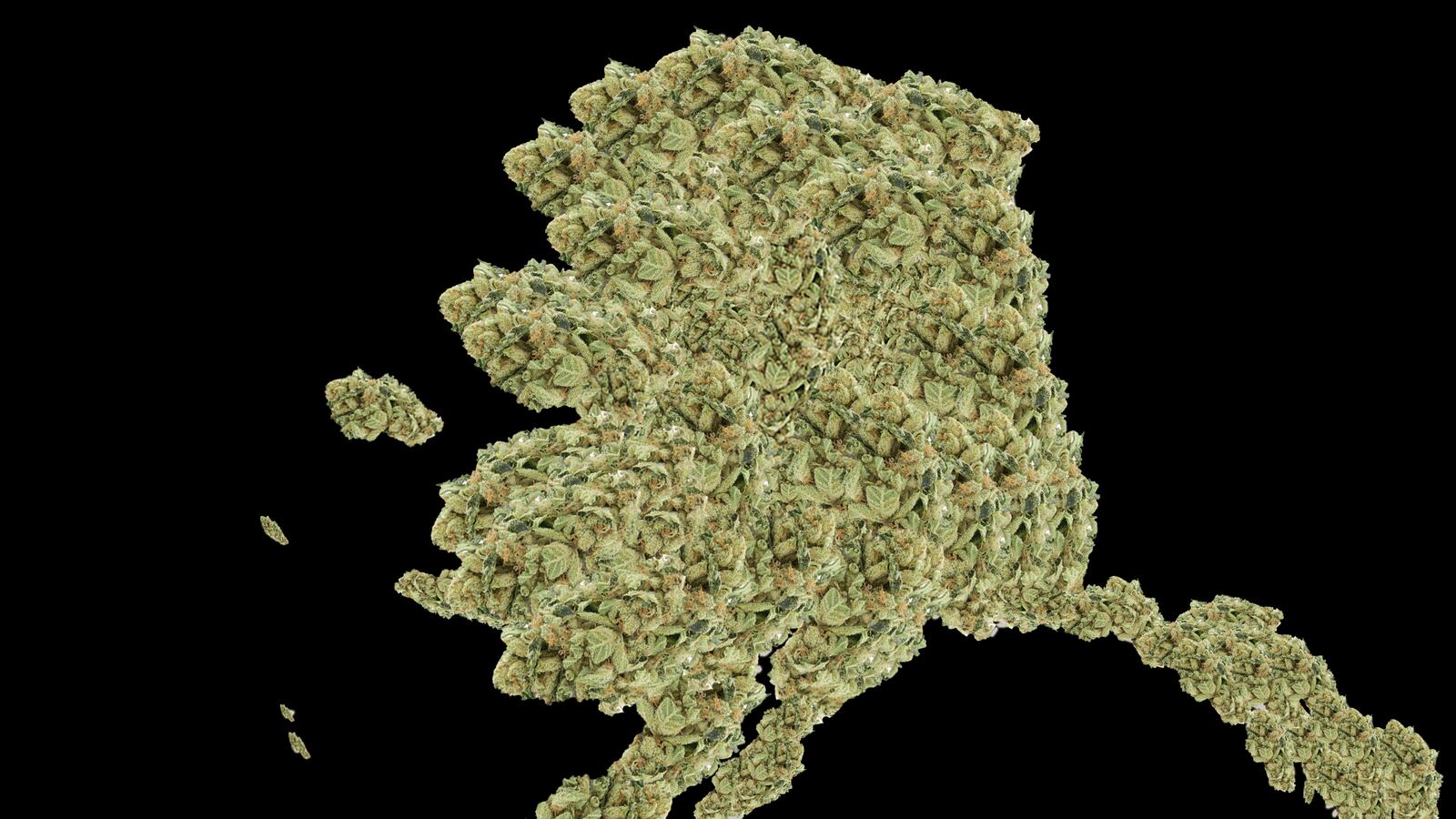If Alaska Democrat Mark Begich wins re-election to the U.S. Senate, he may have Republican state legislators to thank.

Because the Alaska Legislature failed to gavel out by its statutory deadline last week, the November ballot has morphed into an electoral blockbuster. Three initiatives that were supposed to appear in the August primary have been bumped to the general election. So now, on top of deciding whether they want reelect a Democrat in a year where Republicans could seize control of Congress, Alaskans will be voting on initiatives to increase the minimum wage, to allow the sale of marijuana, and to make it harder to build an unpopular open-pit mine near the world’s largest salmon run.
Any one of those initiatives could be seen as a gift to Democrats. Together, they could boost turnout by up to 5 percent, according to political scientist Caroline Tolbert.
“The conditions are ripe for these ballot measure to potentially shape the races in 2014,” says Tolbert, a professor at the University of Iowa.
While Alaska is uniquely difficult to survey, the polls that have been done on those initiatives show they’re popular in the state. They do especially well with younger and often more liberal voters.
A February survey (PDF) from Public Policy Polling shows that 82 percent of people who identify as very liberal are comfortable with recreational marijuana, while just 21 percent of people who say they’re very conservative say they’re in favor it. Support from moderates hovers in the mid-60s.
The minimum wage initiative looks even more popular. That same PPP survey shows 88 percent of liberal voters support increasing the minimum wage, where 48 percent of somewhat conservative voters and 24 percent of very conservative voters also like the idea. In total, 60 percent of those surveyed said they wanted the minimum wage increased, and 33 percent did not. A poll (PDF) commissioned by Republicans legislators actually shows the minimum wage initiative doing even better, with 69 percent of respondents supporting the hike.
“If there’s going to be a spillover effect from minimum wage, or legalization of marijuana, or an environmental-type ballot measure, it should, if anything, have a positive effect on the Democrats running for office,” says Tolbert.
Given that the major political prognosticators—Cook, Rothenberg, Larry Sabato, etc.—have all listed the Alaska Senate race as a toss-up, the extra turnout from the initiatives could make a difference.
There’s no question that Begich faces a tough contest. His original election was unlikely, winning only after incumbent Republican Ted Stevens was found guilty in a corruption trial only eight days before Election Day, and Alaska is a conservative state. Since statehood, its vote has gone to a Democratic presidential candidate just once—and that was to Lyndon B. Johnson in 1964. In 2012, Mitt Romney beat Barack Obama by 14 points. While Republican voters won’t pick a challenger from their three candidates until August, the national party sees it as a prime opportunity for a pickup.
None of the Senate campaigns—including Begich’s—would comment on how they view the initiatives affecting the race.
But the initiative campaigns acknowledge that their ballot measures have the potential to shake things up.
“It has the potential to, without a doubt,” says Art Hackney, a political consultant working on the initiative, to deliver a blow to the proposed Pebble Mine. “A lot of that has to do with the candidates as they go forward to the election. I mean I said early on that if they moved them across to the general it would certainly have a big benefit for Mark Begich.”
Begich is one of the few elected officials in the state to have come out against the mining project.
Even though Hackney sees Democrats benefitting, he says initiatives like his should not be viewed as partisan. He can see a person supporting the anti-Pebble initiative and voting for a Republican ticket. After all, as a GOP operative he’s a prime example of that.
On top of his initiative work, Hackney has a portfolio of Republican clients, including one who is hoping to defeat Begich in November.
“We are involved in a super PAC trying to help [Republican Senate contender] Dan Sullivan beat Mark Begich,” says Hackney. “Will we do that heart and soul? Absolutely. If there is some level that Mark Begich will try to trade upon the Pebble issue, so be it.”
The spokesperson for the marijuana initiative is in the same camp. Like Hackney, Taylor Bickford has mostly worked to get Republicans elected. He also thinks the ballot measure he represents has crossover appeal, especially to the state’s more libertarian-leaning voters.
“If you were looking at it objectively, I think it would be safe to say that having the marijuana initiative on the ballot will have some impact on turnout,” says Bickford. “It’s just very, very hard to say how significant that’ll be.”
Of all the initiatives, the minimum wage measure seems to be the one that most obviously benefits Democrats. President Barack Obama has made a wage hike a major part of his platform, and Begich has signed on as a co-sponsor of the legislation. National Democratic strategists have also been following the minimum wage campaigns that are underway across the country.
Vince Beltrami has been a major backer of the effort happening in this state. He’s the president of the Alaska AFL-CIO, and his organization has put money into the initiative and helped gather signatures to get it on the ballot. He says union members will definitely be coming out to vote on it.
“We’re going to be very motivated and our membership will be very motivated to turn out,” say Beltrami of the November election
Beltrami points out that the Alaska minimum wage initiative was in the works a year before national Democrats seized on it as a strategy. But he says it became apparent the GOP was afraid of it this month, after a bloc of hard-line Republicans tried and failed to pass their own minimum wage bill that would have taken the initiative off the ballot. Conservative legislators who had previously voted to gut wage hikes in the past became champions of an increase that exceeded the initiative language—making a ballot question moot—while Democrats and labor-friendly Republicans teamed up to block it out of electioneering concerns.
The Alaska Republican Party even put out an action alert on Facebook calling on its members to pressure holdouts in the Legislature, before quickly deleting it.
Given the timing, Beltrami found the effort inherently suspect.
“You’d have to be blind not to see the implications that it has on the elections,” says Beltrami.
Originally, all of the initiatives were scheduled to be on the primary ballot, alongside a referendum to repeal a new law that effectively lowers taxes on oil companies. Beltrami believes the minimum wage bill was introduced because it would hurt Republicans no matter what the ballot.
“It’s a hot potato, right?” says Beltrami. “They don’t want it in August, because it competes with the [oil tax] referendum. They don’t want it in November, because it competes with all the rest of the races.”
And the research backs that up.
Going back to Caroline Tolbert’s studies, some of the clearest data she’s gotten on ballot propositions has come from tracking minimum wage initiatives. Back in 2006, there were half a dozen that passed across the country.
“People who supported increasing the minimum wage were then more likely to vote for Democratic members of Congress,” says Tolbert.
Begich probably wouldn’t mind if that trend continues.






